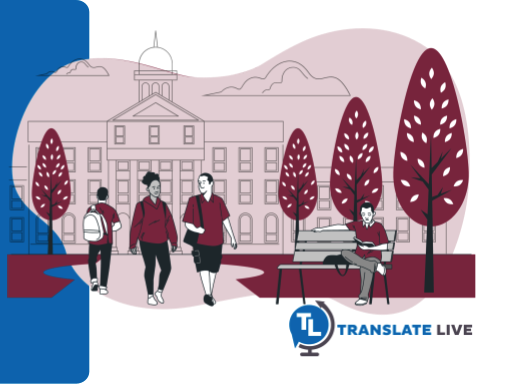August 18th, 2025
DOJ Issues New Guidance on English as Official Language: What It Means for Language Services
 Written by Kate Pechacek
Written by Kate Pechacek
On July 14, 2025, the U.S. Department of Justice (DOJ) released new guidance directing federal agencies to scale back “non-essential” multilingual services, pause the LEP.gov website, and increase the use of AI-powered translation. The guidance follows a March 2025 Executive Order declaring English the official language of the United States.
According to the DOJ, the goal is to streamline processes, ensure consistency, and redirect resources toward English-language education. While these changes expressly aim at efficiency and cost-effectiveness, they also represent a significant shift in how individuals with limited English proficiency (LEP) may access essential government services.
Key Elements of the Guidance
- Audit for Reduction of Multilingual Services; Agencies are directed to review current language services, identify “non-essential” multilingual documents and resources, and create plans to phase them out.
- Pause on LEP.gov & Related Resources; Public-facing language access materials, including LEP.gov, will remain on hold pending a 180-day review and updated DOJ guidance.
- AI & Machine Translation; The DOJ encourages the use of AI-based translation tools to reduce costs and increase efficiency where human translation is not deemed necessary.
- English-Language Education; Some funding will be redirected to programs designed to promote English acquisition and proficiency.
- Agency-directed English-only; Agencies are not required to eliminate all multilingual services, but are urged to evaluate where English-only communication may be sufficient to meet their mission.
A Historical Shift
This policy represents a departure from Executive Order 13166, signed in 2000, which required federal agencies to ensure meaningful access for people with limited English proficiency. For 25 years, the DOJ played a lead role in ensuring language access compliance. The July 2025 memo now signals a move away from that framework.
Potential Impact
While the DOJ’s expressed intent is increased efficiency, the changes could have broad effects:
- Individuals with Limited English Proficiency (LEP) may experience reduced access to translated government forms, notices, and services in education, healthcare, and civic participation.
- Agencies & Public Service Providers will need to balance new compliance requirements with the need to serve diverse communities effectively.
- Agencies will need to integrate AI and machine translation more extensively. This necessitates careful selection of service providers to guarantee translation quality remains high.
What Happens Next
The DOJ will develop additional guidance over the next 180 days, including criteria for when multilingual support remains “necessary.” A public comment period will provide an opportunity for agencies, organizations, and communities to share input on language access needs.
Where TranslateLive Fits
TranslateLive remains committed to helping agencies and organizations adapt to this changing environment while ensuring accurate and accessible communication. Our solutions can:
- Support compliance under the new DOJ framework
- Enable responsible use of AI translation while preserving quality and accuracy
- Ensure communication remains inclusive for all community members, regardless of language
Closing Thought
Policy shifts may change the framework, but the need for clear, accurate, and inclusive communication does not. As the DOJ’s review period continues, agencies and organizations can prepare by evaluating their current language access strategies, identifying mission-critical multilingual resources, and exploring technology-enabled solutions that balance efficiency with accessibility.
At TranslateLive, we will continue to track developments and provide guidance to support organizations navigating this transition.
About TranslateLive
TranslateLive was founded on a powerful idea: Everyone deserves to be heard. It is revolutionizing the way people connect across languages and cultures. As a leading language translation platform, TranslateLive empowers individuals, businesses, school districts, and organizations to communicate effectively in real time. The innovative solutions provide unmatched accuracy, speed, and security, ensuring users can rely on the technology for their most critical communication needs. By prioritizing accessibility and ease of use, TranslateLive is not just transforming conversations—it’s building bridges worldwide. Join us to make every voice understood.
Let’s talk about how TranslateLive can help you open every door, in every language. www.translatelive.com/contact-us/

Kate Pechacek, M.Ed. CEO of OpendoorsEd & TranslateLive K12 Strategic Advisor |
Kate has spent nearly thirty years in K12 education. She began with a decade plus as a classroom teacher. She then held multiple site and district leadership roles in curriculum, instruction, assessment, and MTSS within rural, suburban, and urban settings.
She spent the last ten years in education technology first supporting hundreds of K12 school districts as a partner success manager, trainer, and solutions engineer; and then leading Customer Success, Sales, Marketing, and Research teams. She has since applied her experience as the CEO and founder of OpendoorsEd, consulting with systems-improving ed tech organizations to ensure positive impact on K12 school systems. |



